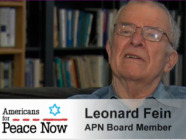
"Things today aren't the way they used to -- and they never were."
I'm no longer sure. I think back -- way back, these days -- to a more innocent time, a time of ingathering the exiles, making the desert bloom, draining the swamps, a more or less egalitarian society, the centrality of the kibbutz, and all the revisionist histories notwithstanding, there remains a chasm between Israel pre-1967 and the last 44 years. True, the early years were very far from the Heavenly Jerusalem, but hey, these were Jews who knew how to grab hold of history and turn it in the direction of their choosing.
And even before: I imagine/remember a Madison Square Garden rally organized by the American Jewish Congress -- 20,000 people, my father and I, then nine years old, among them, inside the building, 50,000 more on the streets outside -- to protest the killing of Jews. Rabbi Steven S. Wise and also Chaim Weizmann, then president of the Jewish Agency and a man already of mythic status, addressed the crowd. Weizmann declared, "Let the gates of Palestine be opened to all who can reach the shores of the Jewish homeland." Even more vividly, I remember the afternoon of November 29, 1947: Joining hundreds of others on a Baltimore street to cry and dance when we heard the approval by the United Nations of Resolution 181, the Partition Resolution.
When I really start remembering, there are altogether too many high points along the way; and I think of a life that has been essentially coterminous with the life of the Jewish State, a life in which I doubt there has been a single day when Israel, one way or another, has not crossed my mind.
Once, at an especially low point -- these last years have been riddled by disappointment -- I was driving from Jerusalem to Herzliya, where I was teaching at the Interdisciplinary Center. Quite suddenly, along the way, the irritation (a mild word) for Israel's misdirection sloughed off and what was left was what had been there all along, a simple and unconditional love of this place and of the idea it embodies.
I loathe the Occupation. I believe, absolutely, that the early slogan of Shalom Achshav, the Israeli Zionist peace movement -- "The Occupation Corrupts" -- is piercingly true, if incomplete. The Occupation brutalizes, distorts, perverts, disfigures. It sickens me. And yet, I am incapable of disengaging. In order to disengage, I would have to seek, actively, to forget -- to forget the songs of the Second Aliyah, to forget what it felt like to encounter the whole of Jerusalem after years of knowing it only rent, and, far more important, to forget so many friends and, permit me, please, to use a somewhat antique word, comrades, who continue to fight to make Israel's Declaration of Independence a living document and to restore Jewish nationalism to its true vocation. I will not abandon them.
And of course I know and am depressed by the knowledge that there are many Israelis who believe in a very different vocation for the Jewish people and the Jewish State than the vocation that animates, beguiles, even obsesses me. And I know even more painfully that I live in Boston, far from the field of controversy; no matter how urgent all that happens there feels to me, I am insulated from the daily pushing and shoving, sturm un drang. Were I to write a chronicle of my association with Israel, its true title would be "Present at the Periphery."
There's regret in that; I might have chosen differently. And, as devoted as I am to the welfare of America's Jews, and as engaged as I have been in advancing our understanding of who we are and of what we can achieve, I recognize that Israel is the more consequential project of the Jewish people in our time. I chose as I did for an array of reasons, and there is no point in reviewing them yet again. My regret joins an irrelevant list of other regrets, regrets for books not written, demonstrations not attended, loves inadequately expressed, a life's flotsam and jetsam after more than seven decades. I have long since come to terms with those regrets; have held closer all the joy and the pride that I've experienced, as also the kindnesses of others that have graced my life.
And here I am, sounding elegiac, which (I hope) is wildly premature. It's not elegy I intend, but dream-state, for I am irretrievably among the assirei tikvah, a prisoner of hope, and if of hope, then organically of dreams as well, wakeful dreams, less dreams of how it used to be than dreams of how it may and must yet be. Dreams of tomorrow, a venerable Jewish tradition. These days, those dreams are seen by some as mere fantasies. In my view, it's the status quo that's a fantasy, a fantasy headed toward a nightmare, and I will not let go the dream.